|
Dr Tom Cromarty Editor Interests: Paediatric Emergency Medicine, Medical Engagement and Leadership, Simulation, Quality Improvement, Research Twitter: @Tomcromarty |
Welsh Research and Education Network
WREN BlogHot topics in research and medical education, in Wales and beyond
Dr Celyn Kenny Editor Interests: Neonates, Neurodevelopment, Sepsis, Media and Broadcasting Twitter: @Celynkenny |
|
NH Gent Belfort Hotel, Ghent, Belgium 22-24th June 2018 Annabel Greenwood ST3 Trainee, Wales Deanery The 4th INAC was held in the beautiful and charming city of Ghent, Belgium. The INAC was established to provide a global platform for neonatologists and budding-neonatologists across the world to come together and share their work on the recent advances in neonatal medicine. This year’s meeting was hosted by the Belgian Society of Neonatal Medicine, led by their President, Professor Filip Cools. An exciting programme was awaited, packed full of brilliant talks delivered by highly esteemed neonatologists, and included a showcase of diverse abstracts from all over the world. Delegates attended from over 50 countries across five continents. The conference itself was perfectly situated, set upon a quaint cobbled street, running alongside the iconic canal that winds its way through the vibrant city. From a personal perspective, I was extremely excited to present my work on organ donation on an international stage. Organ donation in neonatal medicine remains a fairly new concept, and I felt privileged to have the opportunity to fly the flag for organ donation, raising awareness and sharing my knowledge and experiences with others at such a prestigious event. I was fortunate enough to be joined by my colleague and friend, Dr Chris Course, on the trip, who was presenting the WREN Project we collaborated on with Dr Zoe Howard, on postnatal antibiotic use across Wales. Our project fitted in perfectly with one of the principal themes of the conference, namely antibiotic stewardship. There was a particular emphasis on neonatal neurology over the course of the weekend, and it was fascinating to learn of the latest developments in such a complex and challenging field. Professor Jose Honold discussed the concept of a ‘Neuro NICU’, a collaborative approach between neurologists, neonatologists, radiologists, neurosurgeons, neurophysiologists, and specially trained neonatal neurology nurses, using specialised equipment to optimise the management of conditions such as high grade IVH, meningitis and encephalitis, seizures, HIE, and those with congenital cerebral malformations. Another highlight was learning about the recent advances in neonatal lung ultrasound by Dr Luigi Cattarossi, to help guide the diagnosis and management of a number of lung diseases including RDS, TTN, pneumonia and pneumothoracies. This quick and focused bedside diagnostic approach has been shown to be as reliable as CXR in demonstrating lung pathology, resulting in less exposure to radiation for the neonate. It was also of great interest to learn about the challenges faced in neonatal medicine in developing countries, and demonstrated the importance of the implementation of simple interventions e.g. bubble CPAP, in making a huge difference in the survival of preterm infants with respiratory distress. Aside from the conference, there was plenty of time to relax and explore the local delights of Ghent. The city was electric as fans set-up camp in the square to cheer-on their country in the Football World Cup! I certainly enjoyed sampling the local delicacies, Belgian waffles being a particular highlight! As the weekend drew to a close, I reflected on what had been a truly fantastic conference. The INAC 2018 provided an excellent platform for learning and certainly inspired new project proposals and ideas to take back to Wales! Next year's conference is planned to be in Tijuana, Mexico with a pre-conference in San Diego, so a little further afield, but another couple of top destinations for sure!
0 Comments
Dr Rebecca Broomfield http://www.peruki.org/ @PERUKItweep As a member of PERUKI and a representative for WREN I attended the update day at the RCPCH London office on June 4th 2018. What is PERUKI?  Paediatric Emergency Research in the United Kingdom & Ireland (PERUKI) brings together clinicians and researchers who share the vision of improving the emergency care of children through high quality multi-centre research. PERUKI also takes an active role in encouraging and mentoring new investigators in the acquisition of research skills, regarding this as a key area for the sustainability of PEM research going forward Why is it important? Paediatric Emergency Medicine,Can strengthen their research activities by working together across the nations. Enabling co-ordination of research activities, and focus on common goals and agendas will help to achieve stronger outcomes. Large scale robust multi-centre clinical research will be developed and delivered over time, and translation into practice will be achieved throughout the health regions. Can I become a member? Yes! If you are interested go to the website (http://www.peruki.org/) and complete the sign up form. What is going on? 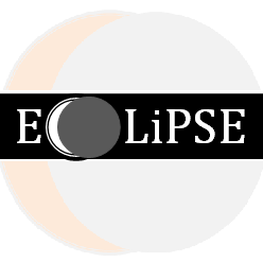 So much fantastic research in a variety of states. Some studies have completed recruitment such as the ECLiPSE study (http://www.eclipse-study.org.uk/) which we were involved in at the University Hospital of Wales - I have never been as excited about research as when I managed to randomise the first patient we recruited. Others are established and ongoing such as the CAP-IT study which we are also involved in recruiting for in Wales. Even more are just about to begin such as the FORCE study on Torus fracture management by Mr Dan Perry (@DanPerry), the NOVEMBR study on the use of non invasive ventilation in Bronchiolitis, Paul Macnamara and the SCIENCE study. But the day was also to present problems and potential research ideas. Professor Steve Cunningham presented the problems with research into pre-school wheeze and need for clarification of the grey areas between the ages of 2-4 years and the conflicting evidence base which we currently have. We had a reminder from Dr Tom Waterfield (@DrTomWaterfield) about the importance of establishing the clinical features which make a child with a non-blanching rash and a temperature more likely to have a meningicoccal sepsis than another illness. The rates of meningitis are falling - do we need to act now and progress this research before we miss the opportunity to capture this information. Which features make the child more likely to be unwell and which can differentiate those who are sick with those who are not. Information was presented on the HEEADSSS tool and discussion led by Dr David James (@DrDaveJames) about the definition of adolescence - should it be defined as the ages 10-24 years? and they would rather be 'young people'. Young people presenting to the emergency department are a big group, and this is increasing. As emergency paediatricians can we do something for this group of the population and should we be. The HEEADSSS tool (Home, Education, Eating, Activities, Drugs, Sexuality, Suicide, Safety) is useful but only if you know what services are available in your area and how to signpost people to them. Could we also utilize PERUKI to reduce variation in practice? An example discussed on the day was the use of metal detectors for ingested objects. There was no consistency about the level of training which people had to use the equipment as well as the areas of the body which were scanned. Also there was an inconsistency about what people did with the information when they used the equipment. There was also discussion about findings elsewhere which have not been replicated in the UK data. For example the rotavirus vaccination has been associated with a reduction of seizures elsewhere but the data from the UK does not show this. Why is this? We use a different vaccine could this be the reason or are we not collecting the right data. This demonstrates to me an important feature of research which is to know what is going on and be able to pick up trends in data and potential secondary outcomes which may be unexpected. The future? Is bright! We've taken a few ideas forward for projects within UHW and I am excited to hear the results of the ECLiPSE study.
If you are interested; become a member, follow the twitter feed and attend an update day for more information. If you have any interest in collaborative working, getting involved in research or providing the best care for your patients I would suggest it's worth a look. Princess of Wales Hospital, Bridgend, Friday 8thJune 2018 Annabel Greenwood Paediatric ST3 Trainee Broadly speaking, I feel our exposure to safeguarding training in the early years of paediatric training is limited.
Before you know it, you are the registrar on-call, out of hours, contacted with a complex child protection referral. As a junior paediatric trainee about to transition to middle-grade training, I will inevitably at some point, be faced with this scenario, and if I’m to be completely honest, the thought has previously caused a slight degree of tachycardia, hyperventilation and perspiration on my part, at the uncertainty of such a situation! I therefore searched for a way to dispel my fears and came across a child protection simulation course set-up by Dr Emily Payne, ST8 Community Paediatric Trainee in Wales. This fantastic one-day, multiagency simulation course has certainly enhanced my confidence in the management of child protection cases and I would certainly recommend the day to my fellow trainees. The course facilitates approximately 6-10 trainees, a perfect sized group to allow plenty of opportunity to ask questions and share our experiences with each other. The day began with a couple of short lectures, setting the scene for the day, addressing some key safeguarding principles, including the rights and responsibilities of all doctors, and an outline of the child protection process. We also discussed the ‘ACE’ (Adverse Child Experiences) Study, which has demonstrated that for every 100 adults in Wales, 47 have suffered at least one ACE during their childhood, and 14 people suffered 4 or more events. ACE are stressful experiences occurring during childhood that directly harm a child e.g. sexual, physical or emotional abuse, or effect the environment in which they live e.g. domestic violence, mental health, parental separation. It has been shown that ACE impact across the life course, e.g. affecting neurodevelopment in the early years, potentially causing social, emotional, and cognitive impairment, and perhaps leading to the adoption of high-risk behaviours and crime later on in life. Later in the morning we divided into pairs for 3 workshop sessions focusing on physical, emotional and sexual abuse respectively. These informal, small-group workshops were based on a clinical scenario and provided an excellent opportunity to voice any queries or concerns we had regarding the different categories of abuse. In the afternoon, we worked through a number of simulation child protection scenarios with actors playing the role of the child’s parents, making the situation as realistic as possible. At the end of each scenario we re-grouped to provide feedback and discuss the case in more detail. I felt that this was a completely safe environment to practice leading challenging safeguarding scenarios, and found it extremely useful to receive constructive multiagency feedback, from doctors, social workers and the police. The day was brought to a close with a simulated strategy meeting, and we all played the role of a different member of the multiagency team. This provided a fantastic insight into the role of each member of the team, and demonstrated how everyone works together to collate the evidence in order to generate an accurate account of events, to ensure the safety of the child. I thoroughly enjoyed the course and feel that I will now make the transition to middle-grade training with enhanced knowledge and confidence to manage challenging safeguarding scenarios. 22nd June 2018, Swansea Marriot Hotel Gill Smith, ST4 Paediatrics Trainee, Wales Deanery The spring 2018 WPS meeting was held in a very sunny Swansea. The sun shone down on the beach next to the Marriot hotel which provided a beautiful view during breaks between some excellent presentations and some very thought-provoking talks. The morning presentations were on very varied and interesting topics, which included audits and quality improvement projects from medical students, paediatric trainees and consultants. Presentations from neonatology to general paediatrics meant that there was something for everybody. I particularly enjoyed the presentation by the co-host of the WPS meeting, Dr Carol Sullivan who spoke with enthusiasm and wit about writing a student textbook in paediatrics. It looks like it will be a hit. Just before coffee, we were delighted to see Dr Peter Dale adorned in a bright pink wig and pink cape to highlight and talk about the approaching change to the RCPCH curriculum-progress. He went pink for Progress. Details can be found on the RCPCH website. More fantastic presentations ensued after coffee and the morning session was rounded off with a presentation on the problems encountered by babies born in the late pre-term period. Often thought to be close to term that physiologically they would be similar to those babies born at term. Evidence suggests this is not the case and is certainly gave us food for thought prior to lunch. A brilliant and tasty selection of food was available for lunch, finished by coffee and a chance to chat with the exhibitors. The lunch break was also a great opportunity to pop outside and enjoy the glorious sunshine and beautiful views overlooking the mumbles. After lunch we were kept from any thoughts of postprandial sleepiness by another set of wonderful and stimulating presentations. The first lecture back, presented by Dr Sheena Durnin was perfectly timed about of the use of paediatric pain relief practices in emergency departments in the UK and Ireland. These practices were evaluated across 40 hospitals in the UK and Ireland. It found a wide variety of practices in terms of analgesia used, timing of analgesia policies, and availability of play specialists to name a few. Dr Durnin earned the award of best presentation. Congratulations! Next up, another award winning presentation by Dr Rachel Morris who spoke so eloquently and with such passion about the implementation of family integrated care in a tertiary neonatal unit. The results were encouraging in that since the introduction of Family integrated care there had been an increase in breast feeding rates and a reduction in the length of stay and an anecdotal feeling that parents felt more in control and were ready for discharge sooner. Dr Morris won the best trainee award and this was thoroughly deserved. Following another round of superb presentations, the mid afternoon session was rounded off with an absolute gem of a talk from invited speaker Dr Mark Stacey, consultant anaesthetist and Associate Dean in Cardiff and Vale NHS Trust. The talk entitled ‘A Bakers’ Dozen Resilience Skills’ got us up and thinking. We had to write ourselves thirteen points to aid us in our resilience at work and life and included sleep, meditation and taking care of yourself. Some very important points and recommendations made. This talk left many feeling invigorated and gave us something to talk about during the afternoon tea break over coffee and cake before the late afternoon session. Fuelled with caffeine and carrot cake we had a further four short quick fire talks and the day was completed with a guest lecture from Dr Michael Farquhar, Consultant Paediatrician in children’s sleep medicine at Evelina Children’s hospital. His talk entitled “Rounded with a sleep: Why We Need To Talk About Fatigue” discussed the importance of sleep and gave a convincing argument for the need for all of us to sleep well. Night shift workers are encouraged to take power naps as this will improve our senses, judgement skills and general wellbeing. This talk went beautifully well with the Resilience talk and is definitely something we should all try and think about. Driving tired can be as bad as if driving after drinking alcohol. We made our way to the beach to enjoy the rest of the sunshine before a delightful dinner with colleagues and friends. A lovely end to a fantastic day.
Once again the WPS conference was a great success, showing a very talented bunch of people. It was thought-provoking and inspiring and a great way to meet up with colleagues and brilliant guest speakers. I’m off to get some sleep before the winter meeting (I prescribed it to myself)! |
Editors
Dr Annabel Greenwood Categories
All
|


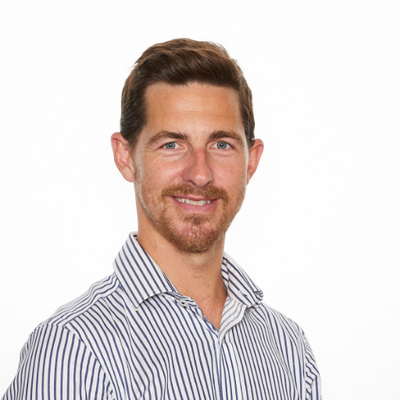
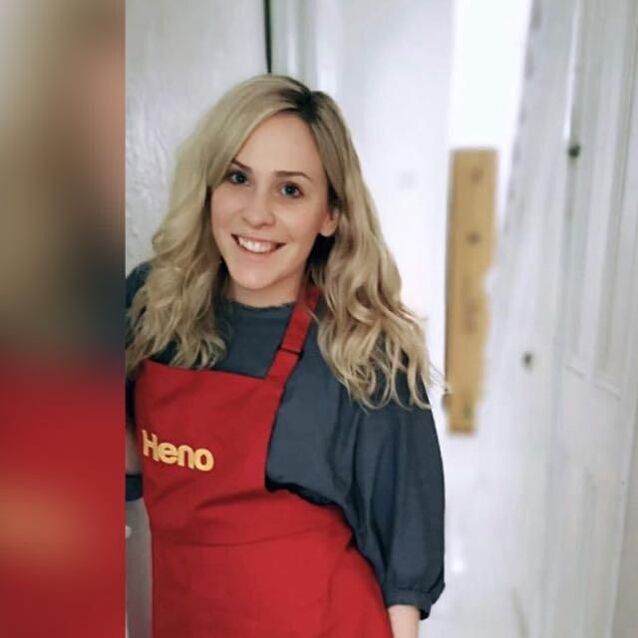
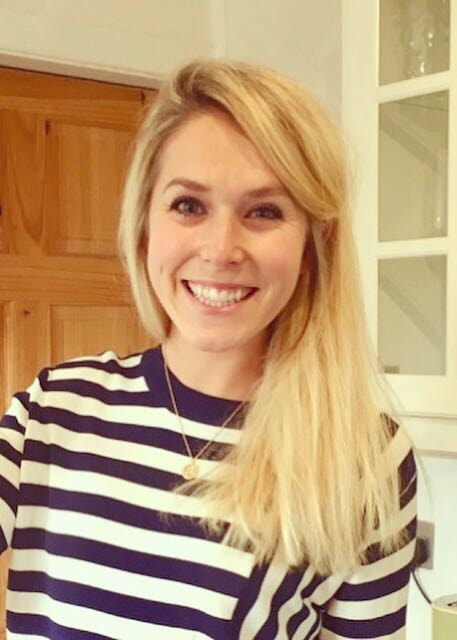

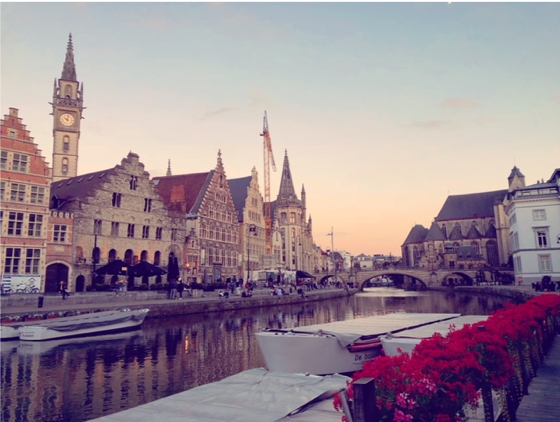
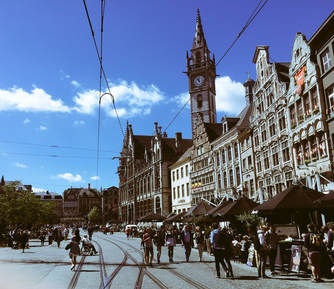
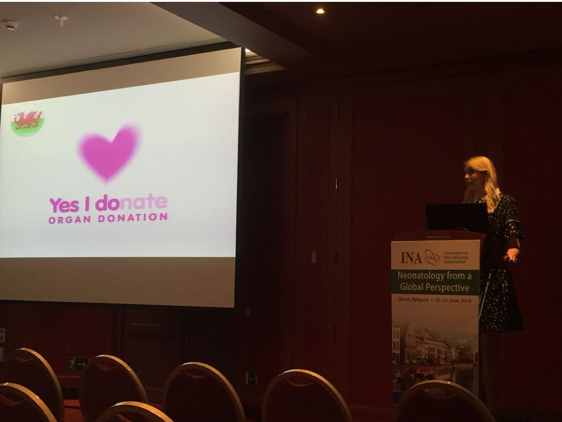

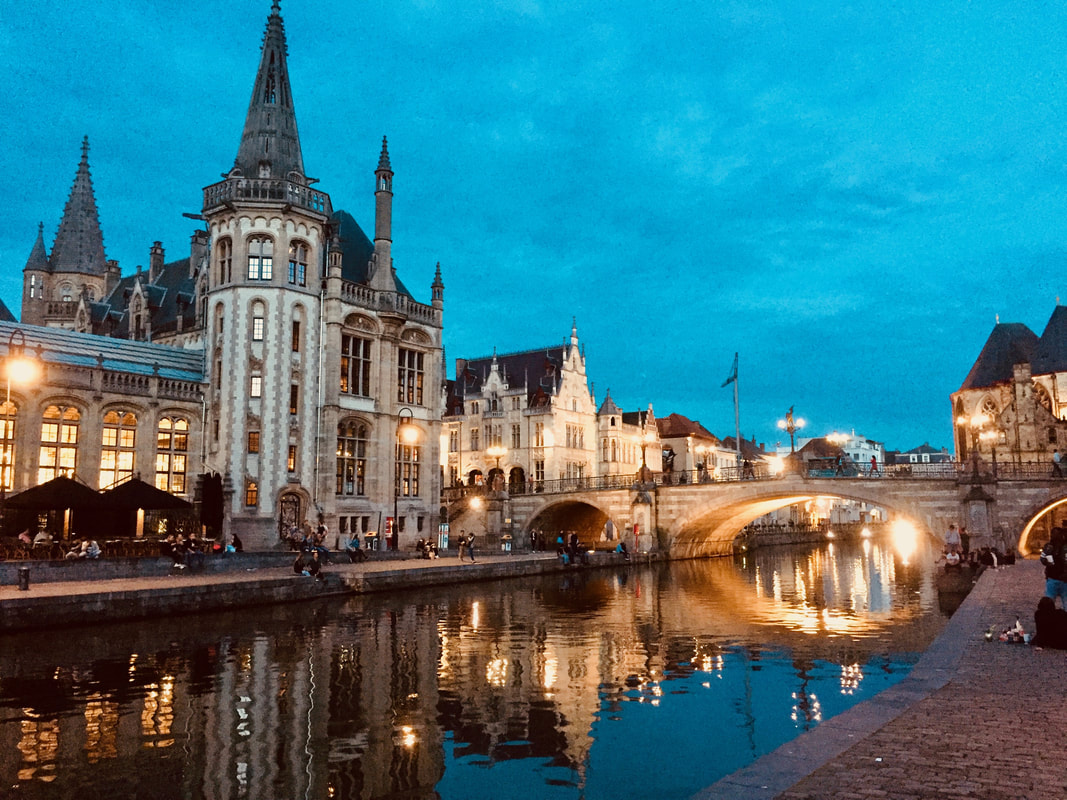

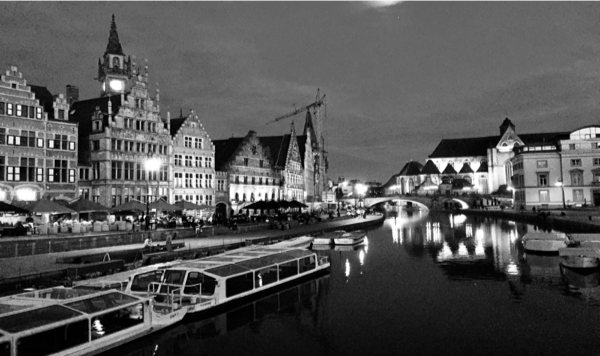



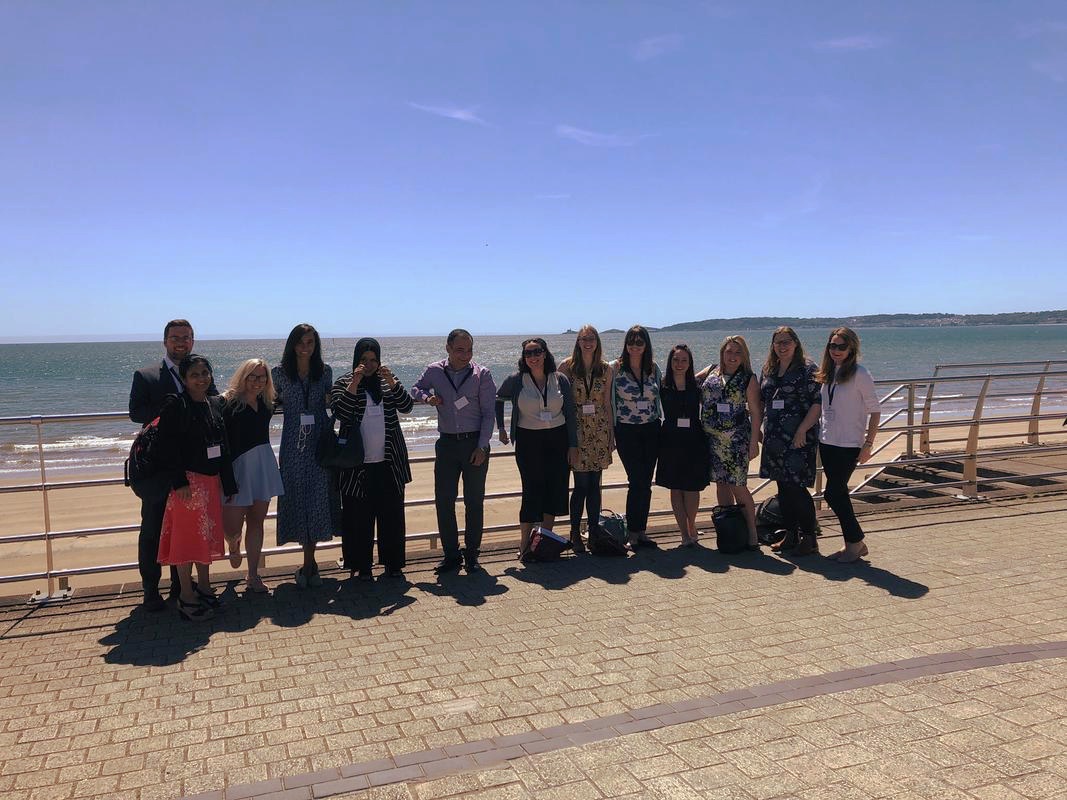
 RSS Feed
RSS Feed
